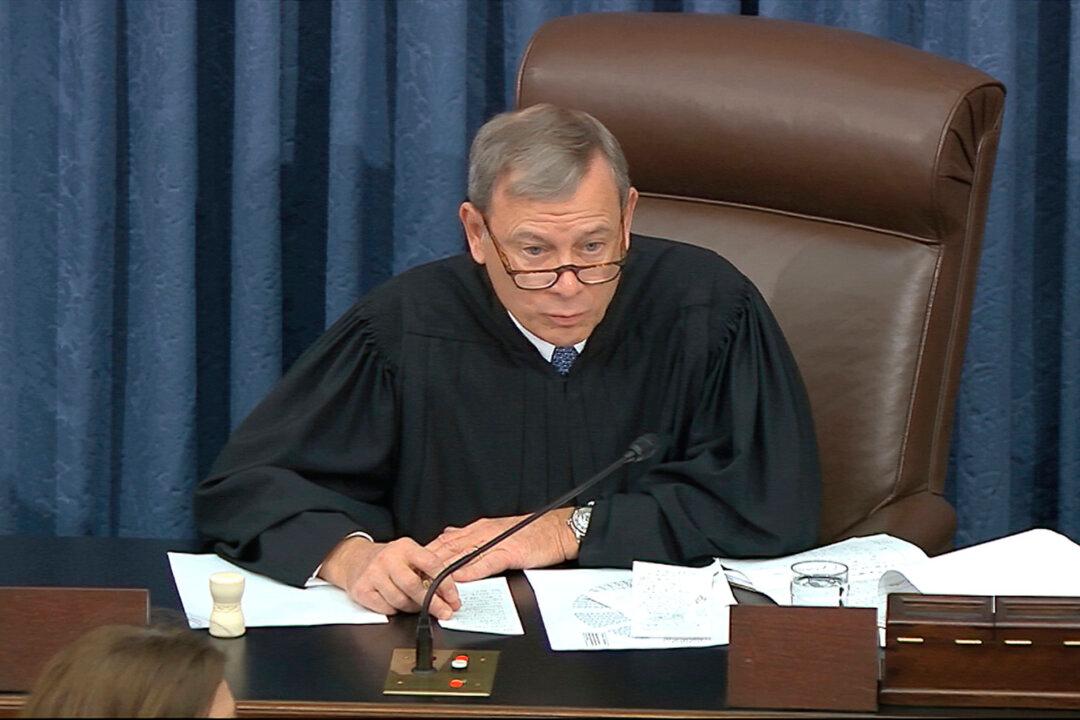Supreme Court Chief Justice John Roberts revealed that he would not break any ties that arise during the Senate impeachment trial of President Donald Trump, answering a question that drove widespread speculation.
Political observers and lawmakers wondered whether Roberts, who is presiding over the trial in Washington, would step in to break a tie in the vote to call more witnesses if it ended at 50-50. Senate Minority Leader Chuck Schumer (D-N.Y.) presented Roberts with a question on Friday before the vote ended up being 49-51 that Roberts used to end the speculation.





